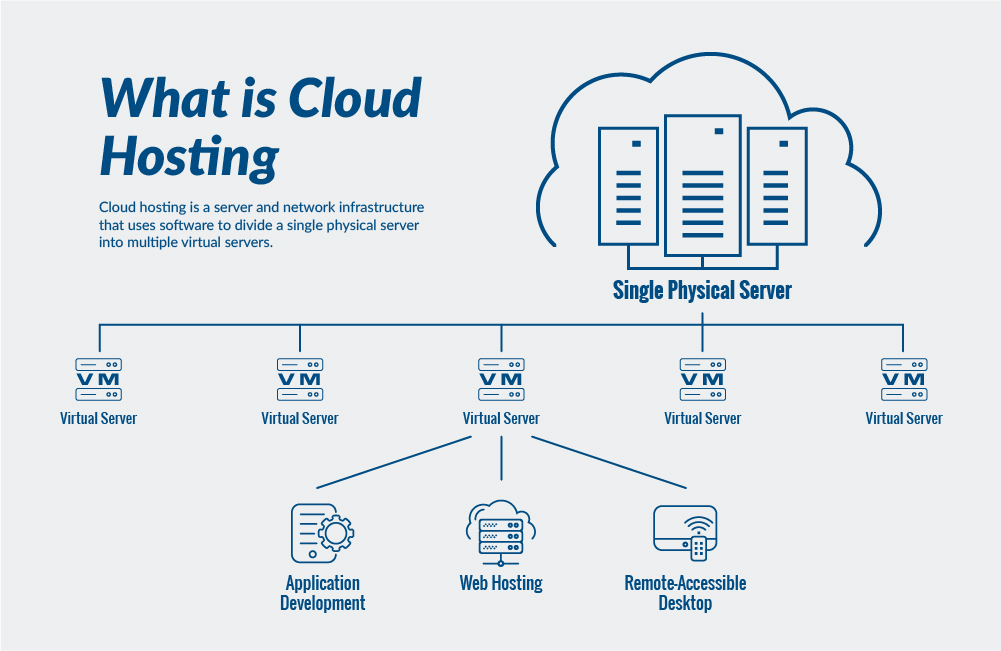Introduction
Cloud hosting has revolutionized the web hosting landscape by harnessing the power of virtualization and distributed resources. In this blog post, we will explore the concept of cloud hosting, uncovering its definition, advantages, and limitations. Additionally, we’ll highlight some reputable hosting providers that offer top-notch cloud hosting services.
What is Cloud Hosting?

Cloud hosting operates on a decentralized infrastructure, leveraging multiple servers interconnected across various data centres. Instead of relying on a single physical server, your website’s data is distributed and processed across the cloud network. This dynamic approach ensures high availability and scalability, as resources are virtually unlimited and can be quickly allocated based on demand.
Advantages of Cloud Hosting
Scalability on Demand:
Cloud hosting offers unparalleled scalability, allowing you to effortlessly upgrade or downgrade resources as your website traffic fluctuates. This flexibility ensures optimal performance during traffic spikes without any service interruptions.
Reliability and High Uptime:
With data distributed across multiple servers, cloud hosting provides enhanced redundancy and fault tolerance. If one server experiences issues, your website seamlessly switches to another, ensuring high uptime and continuous availability.
Cost-Efficiency:
Cloud hosting operates on a pay-as-you-go model, meaning you only pay for the resources you use. This cost-effective approach is ideal for businesses looking to optimize their hosting expenses.
Global Accessibility:
The distributed nature of cloud hosting enables faster content delivery to users worldwide. Your website’s data is geographically replicated, reducing latency and improving user experience.
Easy Management:
Cloud hosting often comes with user-friendly interfaces and management tools, simplifying server configurations and resource allocation.
Limitations of Cloud Hosting
Technical Complexity:
Managing cloud hosting may require technical expertise, especially when setting up and configuring virtual servers and load balancing.
Cost Variability:
While cloud hosting can be cost-efficient, unexpected traffic surges or resource usage spikes can lead to higher costs.
Data Security Concerns:
Cloud hosting requires robust security measures to safeguard data across distributed servers. Ensure strong encryption and data protection protocols are in place.
Popular Cloud Hosting Providers
AWS (Amazon Web Services)
AWS is a leading cloud service provider, offering a comprehensive range of cloud hosting solutions with robust performance and global data centres.
Google Cloud
Google Cloud provides a scalable and secure cloud hosting platform, with features such as automatic scaling and extensive data analytics capabilities.
Microsoft Azure
Microsoft Azure delivers reliable cloud hosting solutions, integrated with Microsoft’s suite of business tools and services.
Conclusion
Cloud hosting offers an innovative and flexible solution for websites and applications demanding high availability, scalability, and reliability. Embracing the cloud empowers businesses to scale effortlessly and deliver consistent performance in an ever-changing digital landscape.














